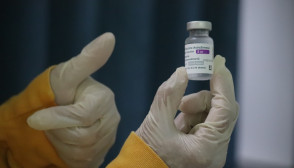(Reuters) - When I met George Blake in Moscow in September 1991, two weeks after an abortive coup against Kremlin leader Mikhail Gorbachev, the Soviet Union was in the process of falling apart and the Communist party had been banned for its role in the putsch.
It must have been a worrying time for the man whose Communist convictions had led him decades earlier to betray his country - Britain - and abandon his family.
Yet Blake, who died in Russia on Saturday aged 98, was in genial mood over supper in his apartment as he reflected on his career as a double agent, his life in exile, and the uncertain future of his adopted country.
"The coup d'etat has brought about a shock that may make it possible to make changes that should have been carried out a long time ago," said Blake.
"Now, the tooth has been pulled out," he said, imagining a future when the 15 Soviet republics might evolve along the lines of the European Community, forerunner of the European Union, under a form of "caring capitalism".
It was not to be: Blake and his dinner guests had no inkling that night that the Soviet Union would cease to exist within months and Gorbachev, fatally undermined by the coup, would find himself out of a job.
THE OUTSIDER
Blake was the last in a notorious line of British spies who were secretly working for the Soviet Union, and whose betrayals rocked and humiliated the intelligence establishment at the height of the Cold War.
Unmasked in 1961, he was sentenced to 42 years in London's Wormwood Scrubs prison. But he escaped in 1966 with the help of two British peace activists, was smuggled across the Iron Curtain and began a new life in Moscow, leaving behind his wife and children.
What struck me most about him was a kind of rootlessness. Born in the Netherlands, he was totally fluent in English and Russian, but spoke both languages with a marked accent.
Sporting a tweed jacket and bow tie, he resembled an affable professor with balding head and peppery beard, shuffling around an apartment where Dutch paintings and Russian icons adorned the walls and volumes of Balzac and Lenin lined the bookshelves.
In Moscow he had made himself a new life, marrying a Soviet wife, Ida, and raising their son Misha together while working at a foreign affairs institute.
At first, he recalled, he was a true believer in the promise of Communism: it made a deep impression on him that anyone could just walk into an ordinary 'Gastronom', or grocery store, and buy a glass of champagne at the counter.
"I thought: we are on the eve of Communism," he said. "That's how naive I was. Gradually I realised that wasn't so... I thought Soviet man was a new man - and he wasn't."
INTO THE UNKNOWN
Despite his disenchantment with the system, Blake retained his respect for the KGB security service to which he had switched his allegiance.
"The KGB was an instrument of the party which was there to enforce and punish if people didn't toe the party line... The KGB was there to see that if policies were not carried out, people were pulled up short," he said.
"It was one of the few Soviet institutions which was not corrupt. The KGB was to the Communist Party what the Jesuit order was to the Catholic church."
Far from disbanding and opening up its archives, as some were urging at that time, the organisation would survive under a new name, he predicted.
He was right: renamed as the FSB, it was eventually to re-emerge stronger, and an obscure ex-KGB officer named Vladimir Putin would one day take charge of the country.
Looking further into the future, Blake could still imagine a day when the Communist dream in which he had placed his faith might be revived.
"It was an ideal which, if it could have been achieved, would have been well worth it," he said.
"I thought it could be, and I did what I could to help it, to build such a society. It has not proved possible. But I think it is a noble idea and I think humanity will return to it, because I think it always has."
(Reporting by Mark Trevelyan; editing by John Stonestreet)










